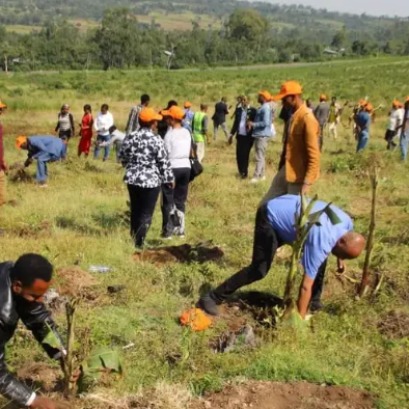
Nuevas directrices de la FAO ayudan a los países a evaluar mejor sus recursos forestales
Tienen como objetivo apoyar a los países en la recopilación, compilación y análisis de la información sobre los recursos forestales, para que puedan adoptar políticas y prácticas basadas en pruebas objetivas.
La FAO elaboró nuevas directrices para ayudar a los países a desarrollar sistemas nacionales sólidos de monitoreo de los bosques, esenciales para medir el progreso hacia los Objetivos de Desarrollo Sostenible (ODS).
Para cumplir sus compromisos derivados del Acuerdo sobre el Clima de París y de la Agenda 2030 para el Desarrollo Sostenible, los países deben recopilar datos forestales más detallados. Aquí se incluye no solo información sobre el tamaño y el aumento o declive de sus bosques, sino también aspectos claves de la gestión forestal sostenible, como el papel de los bosques para conservar la biodiversidad, reducir el impacto del cambio climático y aportar otros servicios ecosistémicos, consigna la nota publicada por la FAO.
Las directrices voluntarias sobre monitoreo forestal nacional tienen como objetivo apoyar a los países en la recopilación, compilación y análisis de la información sobre los recursos forestales, para que puedan adoptar políticas y prácticas basadas en pruebas objetivas que les ayuden a lograr una ordenación sostenible de los recursos forestales en línea con los Objetivos de Desarrollo Sostenible.
La demanda de datos forestales fiables, actualizados y más versátiles y de capacidades analíticas más sólidas a nivel nacional ha crecido considerablemente en los últimos años”, señaló Eva Muller, directora de la División de Políticas y Recursos Forestales de la FAO, quien agregó que “comprender los recursos forestales y la forma cómo cambian es clave para abordar el cambio climático y avanzar hacia los Objetivos de Desarrollo Sostenible”.

IT MAY INTEREST YOU
 Reforestation advances in the Historic Sanctuary of Machu Picchu with new restored hectares
Reforestation advances in the Historic Sanctuary of Machu Picchu with new restored hectares
The plan includes the planting of a thousand new trees in the sanctuary, in response to the damage caused by forest fires and environmental threats, with the support of local authorities and representatives of the tourism sector.
 More wood | Air terminals as well-being spaces with design and natural atmosphere
More wood | Air terminals as well-being spaces with design and natural atmosphere
In a world in which mental health, comprehensive well-being and connection with nature are increasingly urgent, wood appears as an increasingly chosen material to transform not only how we live, but also how we feel and move.
 The country that planted 350 million trees in one day and caused great consequences
The country that planted 350 million trees in one day and caused great consequences
Discover the country that planted 350 million trees in one day and caused great consequences Climate change and deforestation have caused great ecological damage in many places. For this reason, a country planted 350 million trees in one day and thus obtained a world record, although it is estimated that in 2025, it will plant twice as many.





















